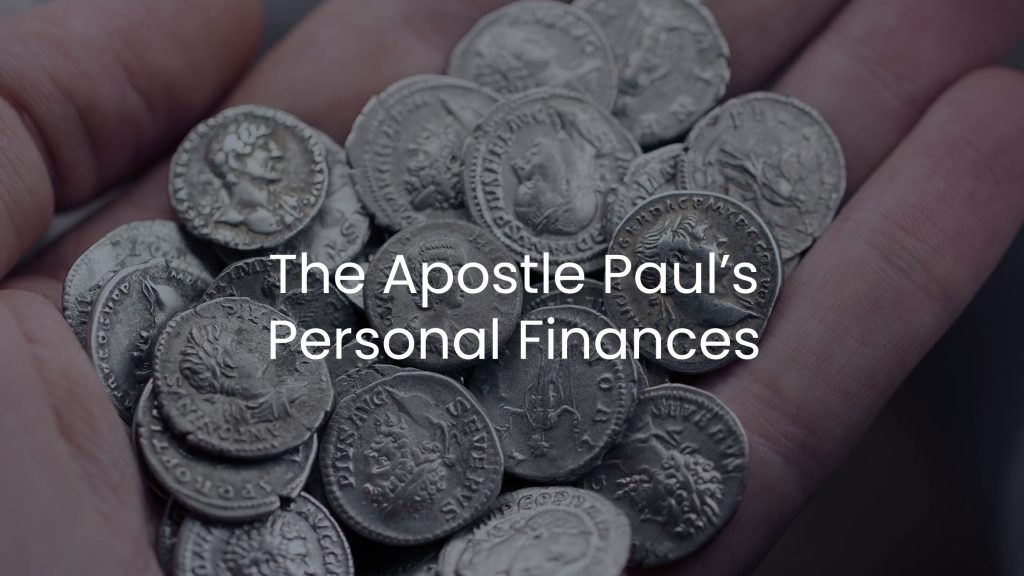|
Getting your Trinity Audio player ready...
|
I couldn’t look at the Apostle Paul’s bank records, as when I asked my personal Gemini® AI Assistant (I call her “Gem”) to investigate, she told me that while she knows everything about my personal and your personal finances, her research prowess doesn’t extend to the first century.
However, we can infer many details about Paul’s financial picture from reading his writings in the New Testament. While Paul can’t tell us which stocks to buy or sell, by following his writings and lifestyle, we can find peace today with our money.
(Stock tip: If you invested $100 in Nvidia in 1999, it would be worth $308,975 today. Sorry that Interruptions didn’t exist then, or this advice could have been timelier.)
Let’s look at what the Bible tells us about Paul’s finances.
- At one time, he was rich
I am a Jew, born in Tarsus in Cilicia, but brought up in this city, educated at the feet of Gamaliel according to the strict manner of the law of our fathers, being zealous for God as all of you are this day (Acts 22:3, ESV).
The tribune came and said to him, “Tell me, are you a Roman citizen?” And he said, “Yes” (Acts 22:27).
Being a Roman citizen indicated wealth; traveling across the empire to Jerusalem for education under the most famous teacher in Israel (much like attending Harvard today without financial aid) also demonstrated wealth.
- He then became poor for the sake of the gospel
More than that, I count all things to be loss in view of the surpassing value of knowing Christ Jesus my Lord, for whom I have suffered the loss of all things, and count them but rubbish so that I may gain Christ (Philippians 3:8, NASB).
Paul’s proclamation of Jesus caused him “the loss of all things,” which would include his social status, political connections, and wealth. During his missionary trips, Paul would practice his trade of tentmaking to provide financial support.
(Parent note: One of my daughters wanted to go on the mission field right after high school, and I insisted that she get her elementary education degree before going. She went to Afghanistan as a missionary for four years and now works in the administration of the Centerville School District.)
- He learned to be content in all circumstances
I know how to get along with humble means, and I also know how to live in prosperity; in any and every circumstance I have learned the secret of being filled and going hungry, both of having abundance and suffering need (Philippians 4:12, NASB1995).
Paul learned that circumstances never hinder God’s will. He then practiced radical generosity, causing him to give up his earthly possessions. But in that loss, he gained Jesus, the only source of peace.
Paul taught that …
The things you have learned and received and heard and seen in me, practice these things, and the God of peace will be with you (Philippians 4:9).
(Radical sacrifice alert: My sister heard God tell her to sell her earthly stuff and start a school for children in one of the poorest areas of the Philippines. This school now has 550 children in kindergarten through 12th grade and 120 students in college.)
The Apostle Paul sums up his investment strategy in the following passage …
God loves a cheerful giver. And God is able to make all grace abound to you, so that always having all sufficiency in everything, you may have an abundance for every good deed (2 Corinthians 9:7-8).
Paul’s strategy emphasized heavenly over earthly reward; our 401(k) may not be as invested, but true joy can be found only in storing up treasure in heaven.

